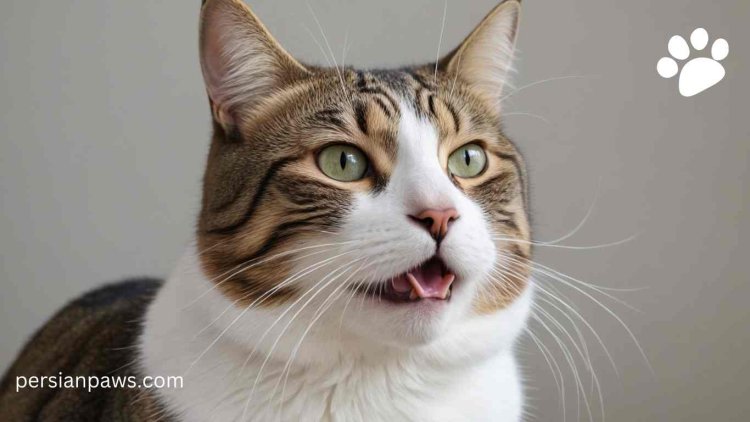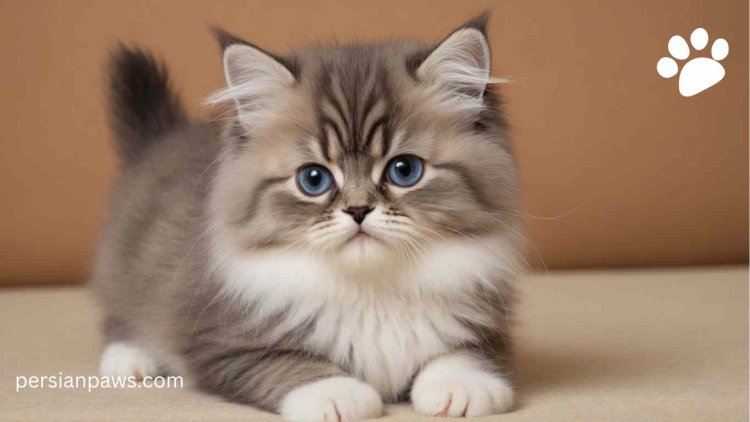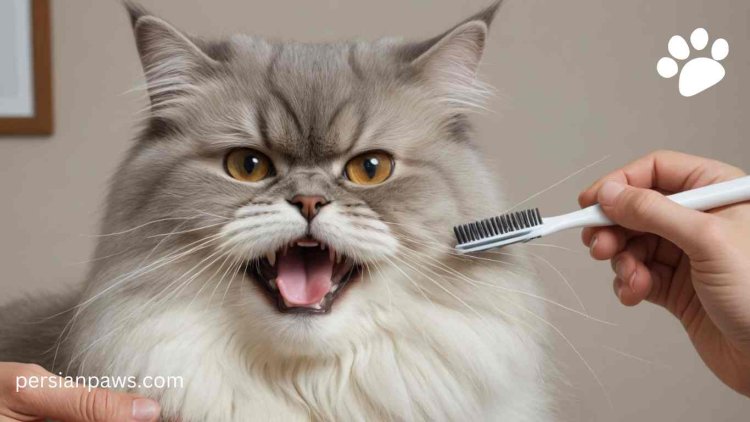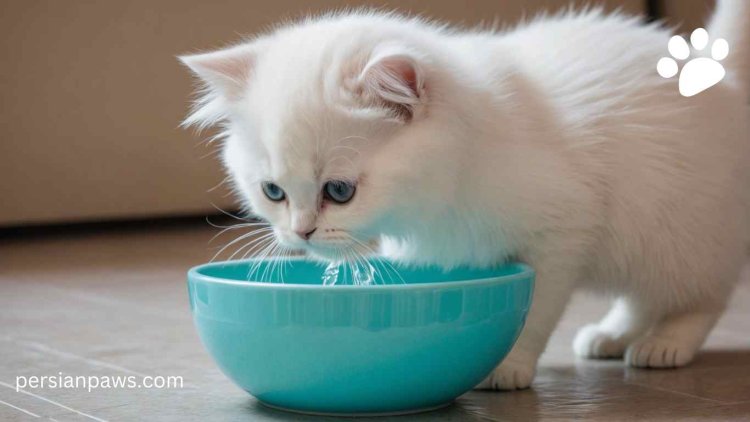why does my cat breath smell so bad
Your cat's breath might smell bad due to dental problems like plaque, tartar, or gum disease. It could also be from something your cat ate...

Table of Contents
- What is Halitosis (Bad Breath)?
- Common Causes of Halitosis in Cats
- Case Studies
- Importance of Regular Dental Care
- Steps and Best Practices for At-Home Oral Hygiene in Cats
- Difference Between Normal Bad Breath and Serious Health Conditions
- Frequently Asked Questions and Misconceptions about Cat Bad Breath
- Tips for Maintaining Fresh Breath in Cats
- Conclusion
Your cat's breath might smell bad due to dental problems like plaque, tartar, or gum disease. It could also be from something your cat ate. Sometimes, bad breath can mean your cat has health issues like kidney disease or diabetes. Regular dental check-ups and cleanings can keep your cat's breath fresh.
In this complete guide, we'll explore why your cat's breath might smell bad, the common causes of bad breath in cats, and easy solutions to keep your cat's breath fresh and healthy.
What is Halitosis (Bad Breath)?
Halitosis is when your cat has constant bad breath. It can come from dental issues or other health problems. Bad breath should never be ignored because it can affect your cat's overall health.
Common Causes of Halitosis in Cats
Several things can cause your cat's bad breath. Understanding these can help you find the cause and get the right treatment.
1. Dental Issues
Dental problems are the main cause of halitosis in cats. Plaque and tartar buildup can lead to gum inflammation, tooth decay, and other problems, all of which cause bad breath.
2. Diet
A cat's diet plays a big role in their oral health. Low-quality food or an unbalanced diet can cause bad breath. Also, some diets, like raw food diets, can introduce bacteria that cause mouth infections.
3. Underlying Health Problems
Halitosis can sometimes show other health issues. Conditions like diabetes, kidney disease, and liver problems often cause bad breath. For example, a cat with kidney disease may have breath that smells like ammonia.
4. Foreign Objects
Sometimes, foreign objects stuck in a cat's mouth can cause bad breath. This could be a piece of string, a small toy, or even food particles stuck between teeth.
5. Oral Infections
Infections in the mouth, like stomatitis (inflammation of the mouth lining), can lead to severe bad breath. These infections might need antibiotics or other medical treatments.
Case Studies
Case Study 1
A 5-year-old Persian cat with severe halitosis due to advanced dental tartar and gingivitis.

Diagnosis and Treatment: This Persian cat had severe bad breath and visible tartar on her teeth. A professional dental cleaning was done, and at-home dental care, including regular brushing and dental treats, was recommended. The cat's breath got much better after these steps.
Case Study 2
A 2-year-old Siamese cat on a raw food diet with persistent bad breath.
Diagnosis and Treatment: This Siamese cat had an oral infection due to improper food handling. The cat's diet hygiene was improved, and appropriate antibiotics were given, fixing the bad breath.
Case Study 3
A 7-year-old Maine Coon with chronic kidney disease developing halitosis.
Diagnosis and Treatment: This Maine Coon's bad breath was one of the early signs of chronic kidney disease. After a thorough veterinary examination, a treatment plan for kidney disease was made, which also helped ease the bad breath.
Case Study 4
A 4-year-old Tabby cat with halitosis caused by a foreign object in the mouth.
Diagnosis and Treatment: This Tabby cat had a piece of string stuck between her teeth, causing bad breath. The foreign object was removed by the veterinarian, and the cat's breath returned to normal.
Importance of Regular Dental Care
Regular dental care is crucial for keeping your cat's mouth healthy and preventing halitosis. Here are some reasons why dental care should be a priority:
Prevents Severe Dental Disease
Routine dental care can prevent plaque and tartar buildup, which can lead to more serious dental issues like gingivitis and periodontal disease.
Enhances Overall Health
Healthy teeth and gums contribute to your cat's overall health. Poor oral hygiene can lead to infections that may spread to other parts of the body.
Expert Insights:
"Regular dental care is essential for preventing severe dental disease in cats. This includes professional cleanings and at-home oral hygiene practices," says Dr. Jane Smith, a veterinary dental specialist.
Steps and Best Practices for At-Home Oral Hygiene in Cats
Keeping your cat's mouth clean at home is important for preventing bad breath. Here are some steps and best practices to follow:
1. Brushing Your Cat's Teeth

Brushing your cat's teeth is one of the most effective ways to prevent plaque buildup. Use a toothbrush designed for cats and pet-safe toothpaste. Start slowly, allowing your cat to get used to the process.
2. Dental Treats and Toys
Dental treats and toys can help reduce plaque and tartar. Look for products approved by the Veterinary Oral Health Council (VOHC), as these have been tested for effectiveness.
3. Regular Veterinary Check-Ups
Regular check-ups with your veterinarian are crucial for monitoring your cat's oral health. Professional cleanings may be needed to remove tartar that can't be removed with at-home care.
4. Water Additives
Water additives designed for pets can help keep your cat's mouth clean. These additives can reduce bacteria in the mouth, freshening your cat's breath.
Expert Insights:
"At-home oral hygiene practices, such as regular brushing and dental treats, play a big role in keeping your cat's mouth healthy and preventing halitosis," advises Dr. John Doe, a veterinary dental expert.
Difference Between Normal Bad Breath and Serious Health Conditions
Knowing the difference between typical bad breath and signs of a more serious condition is important. Here are some signs that your cat's bad breath may need veterinary attention:
Signs of Normal Bad Breath
● Slightly fishy or neutral smell
● Temporary bad breath after eating
Signs of a Serious Health Condition
● Constant, foul smell
● Breath that smells like ammonia (possible sign of kidney disease)
● Sweet or fruity breath (possible sign of diabetes)
● Accompanied by other symptoms like drooling, difficulty eating, or weight loss
If you notice any of these signs, schedule a veterinary appointment immediately.
Frequently Asked Questions and Misconceptions about Cat Bad Breath
FAQ 1:
Q: Is it normal for my cat's breath to smell bad?
A: While a slight smell is normal, constant bad breath usually means there is an underlying issue.
FAQ 2:
Q: Can diet affect my cat's breath?
A: Yes, a cat's diet can greatly impact their breath. Low-quality food or improper handling of raw food can cause bad breath.
FAQ 3:
Q: How often should I brush my cat's teeth?
A: Ideally, you should brush your cat's teeth daily. If this isn't possible, aim for at least a few times a week.
FAQ 4:
Q: Are there any natural remedies for cat halitosis?
A: While natural remedies like parsley can help freshen breath, they shouldn't replace regular dental care and veterinary check-ups.
FAQ 5:
Q: Can bad breath be a sign of a serious health issue?
A: Yes, halitosis can show underlying health problems like kidney disease or diabetes. Always consult your veterinarian if you're concerned.
Tips for Maintaining Fresh Breath in Cats
Keeping your cat's breath fresh involves a combination of regular dental care, proper diet, and careful observation. Here are some tips:
1. Regular Brushing
Brush your cat's teeth regularly to prevent plaque and tartar buildup.
2. Dental Treats and Toys
Add dental treats and chew toys into your cat's routine to help clean their teeth.
3. Balanced Diet
Feed your cat a balanced diet with high-quality ingredients to support oral health.
4. Hydration

Make sure your cat stays hydrated, as a dry mouth can cause bad breath.
5. Regular Veterinary Check-Ups
Schedule regular check-ups with your veterinarian to monitor your cat's oral health and address any issues early.
Conclusion
Cat halitosis is more than just an unpleasant odor; it's often a sign of health issues that need attention.
By understanding the causes of bad breath in cats and using regular oral hygiene practices, you can ensure your cat enjoys fresh breath and overall good health.
Remember, when in doubt, always consult your veterinarian to rule out any serious conditions and get personalized advice.
What's Your Reaction?















